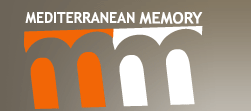Archeology, television and powers in the Mediterranean
Introduction
Since their early days, archeology and powers have always been closely bound to an extent that is impossible to write down the history of one without studying at the same time the political and economic context in which it has developed. In this regard, the Mediterranean is a favorable research field. This is not only due to the Athenian historian Thucydides to whom we attribute one of the first archeological reasoning in the first book of the History of the Peloponnesian War, but also because this shared sea remain a rich chest of remnants of all sorts, places and eras. The marks of the most amazing societies are the ones often which have succeeded or even battled themselves over the same grounds and seas throughout millenniums. They also represent the great stakes which fell upon the shoulders of regional, national and international stakeholders. Often has archeology been used to serve a different purpose than its own: to provide its sponsor with the desired argument so he would not cease his funding.
In this complex and ill-balanced relationship between these actors, television has been playing its part since the second half of the twentieth century, an unprecedented role until then for three reasons: the grand dimension it provides archeological subjects, discoveries, researches and expositions with; the immense number of possible viewers; as well as their very technical characteristics and broadcasting methods at a time, format and rhythm requested by the sponsor. Spared from the boundaries of format and rhythm of cinema or written media, one may say that this televised archeology is at an end, toppled by the success of the internet in the last few years. This is an occasion to identify the strong points of more than half a century of discourses of an ever-growing success; in view of their political sponsors and, of course, the public. These points still vary in type regarding international authorities producing their own documentaries such as UNESCO or national and regional televisions in different parts of the Mediterranean. The archives of INA present an occasion to address these discourses and study their forms and evolution particularly in the distinct context of decolonization of south Mediterranean countries. For instance, how did the decolonized countries manage the remnants of their land which were discovered by colonial forces? How were the same remnants of the same era and civilization (Roman for example) presented before and after the independence of countries such as Algeria, Tunisia or Morocco? Does the concept of heritage, which eventually falls in the same purpose of archeology, plays a part in portraying it on television? Does its scientific purpose replace its touristic and political stakes? How is the touristic economy reflected through televised archeological discourses? Television is certainly one of the best ways to present the history of archeology during the past sixty years.

Introduction
I. Foreign presence and nationa...
II. Recovery to national contro...
III. Conflicts of powers: arche...
IV. Stakes of powers: anastylos...
Conclusion
References


Abstract
Since their early days, archeology and powers have always been closely bound to an extent that is impossible to write down the history of one without studying at the same time the political and economic context in which it has developed. In this regard, the Mediterranean is a favorable research field. This is not only due to the Athenian historian Thucydides to whom we attribute one of the first archeological reasoning in the first book of the History of the Peloponnesian War, but also because this shared sea remain a rich chest of remnants of all sorts, places and eras. The marks of the most amazing societies are the ones often which have succeeded or even battled themselves over the same grounds and seas throughout millenniums...
Author
Jockey Philippe
Professor in Greek history, University of Aix-Marseille





